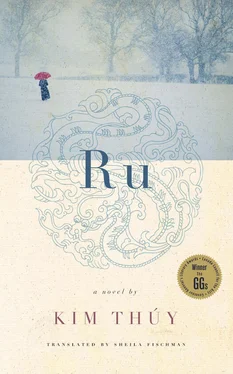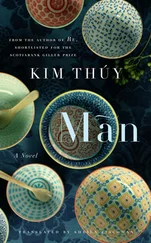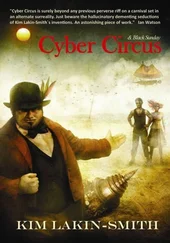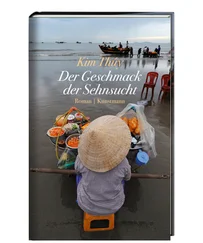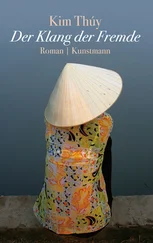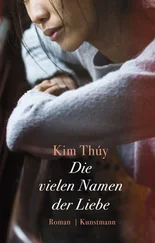In any case, I spoke very little, sometimes not at all. Throughout my early childhood, my cousin Sao Mai always spoke on my behalf because I was her shadow: the same age, the same class, the same sex, but her face was on the bright side and mine on the side of darkness, shadow, silence.
My mother wanted me to talk, to learn French as fast as possible, English too, because my mother tongue had become not exactly insufficient, but useless. Starting in my second year in Quebec, she sent me to a military garrison of anglophone cadets. It was a way that I could learn English for free, she told me. But she was wrong, it wasn’t free. I paid for it, dearly. There were around forty cadets, all of them tall, bursting with energy and, above all, teenagers. They took themselves seriously when inspecting in minute detail the fold of a collar, the angle of a beret, the shine of a boot. The oldest ones yelled at the youngest. They played at war, at the absurd, without understanding. And I didn’t understand them. Nor did I understand why the name of the cadet next to me was repeated in a loop by our superior. Maybe he wanted me to remember the name of that teenage boy who was twice my height. My first conversation in English started with me saying to him at the end of the session: “Bye, Asshole.”
My mother often put me in situations of extreme shame. Once, she asked me to go and buy sugar at the grocery store just below our first apartment. I went but found no sugar. My mother sent me back and even locked the door behind me: “Don’t come back without the sugar!” She had forgotten that I was a deaf-mute. I sat on the grocery store steps until it closed, until the grocer took me by the hand and led me to the bag of sugar. He had understood, even if to me the word sugar was bitter.
For a long time, I thought my mother enjoyed constantly pushing me right to the edge. When I had my own children, I finally understood that I should have seen her behind the locked door, eyes pressed against the peephole; I should have heard her talking on the phone to the grocer when I was sitting on the steps in tears. I also understood later that my mother certainly had dreams for me, but above all she’d given me tools so that I could put down roots, so that I could dream.
The town of Granby was the warm belly that sheltered us during our first year in Canada. The locals cosseted us one by one. The pupils in my grade school lined up to invite us home for lunch so that each of our noon hours was reserved by a family. And every time, we went back to school with nearly empty stomachs because we didn’t know how to use a fork to eat rice that wasn’t sticky. We didn’t know how to tell them that this food was strange to us, that they really didn’t have to go to every grocery store in search of the last box of Minute Rice. We could neither talk to nor understand them. But that wasn’t the main thing. There was generosity and gratitude in every grain of the rice left on our plates. To this day I still wonder whether words might have tainted those moments of grace. And whether feelings are sometimes understood better in silence, like the one that existed between Claudette and Monsieur Kiet. Their first moments together were wordless, yet Monsieur Kiet agreed to put his baby into Claudette’s arms without questioning: a baby, his baby, whom he’d found on the shore after his boat had capsized in an especially greedy wave. He had not found his wife, only his son, who was experiencing a second birth without his mother. Claudette stretched out her arms to them and kept them with her for days, for months, for years.
Johanne held out her hand to me in the same way. She liked me even though I wore a tuque with a McDonald’s logo, even though I travelled hidden in a cube van with fifty other Vietnamese to work in fields around the Eastern Townships after school. Johanne wanted me to go to a private secondary school with her the following year. Yet she knew that I waited every afternoon in the yard of that very school for the farmers’ trucks that would take us to work illegally in the fields, earning a few dollars in exchange for the sacks of beans we picked.
Johanne also took me to the movies, even though I was wearing a shirt bought on sale for eighty-eight cents, with a hole near one of the seams. After the film Fame she taught me how to sing the theme song in English, “I sing the body electric,” although I didn’t understand the words, or her conversations with her sister and her parents around their fireplace. It was Johanne too who picked me up after my first falls when we went ice skating, who applauded and shouted my name in the crowd when Serge, a classmate three times my size, took me in his arms along with the football and scored a touchdown.
I wonder if I haven’t invented her, that friend of mine. I’ve met many people who believe in God, but what I believe in is angels, and Johanne was an angel. She was one of an army of them who’d been parachuted into town to give us shock treatment. By the dozen they showed up at our doors to give us warm clothes, toys, invitations, dreams. I often felt there wasn’t enough space inside us to receive everything we were offered, to catch all the smiles that came our way. How could we visit the Granby zoo more than twice each weekend? How could we appreciate a camping trip to the countryside? How to savour an omelette with maple syrup?
I have a photo of my father being embraced by our sponsors, a family of volunteers to whom we’d been assigned. They spent their Sundays taking us to flea markets. They negotiated fiercely on our behalf so we could buy mattresses, dishes, beds, sofas — in short, the basics — with our three-hundred-dollar government allowance meant to furnish our first home in Quebec. One of the vendors threw in a red cowl-necked sweater for my father. He wore it proudly every day of our first spring in Quebec. Today, his broad smile in the photo from that time manages to make us forget that it was a woman’s sweater, nipped in at the waist. Sometimes it’s best not to know everything.
Of course, there were times when we’d have liked to know more. To know, for instance, that in our old mattresses there were fleas. But those details don’t matter because they don’t show in the pictures. In any case, we thought we were immunized against stings, that no flea could pierce our skin bronzed by the Malaysian sun. In fact, the cold winds and hot baths had purified us, making the bites unbearable and the itches bloody.
We threw out the mattresses without telling our sponsors. We didn’t want them to be disappointed, because they’d given us their hearts, their time. We appreciated their generosity, but not sufficiently: we did not yet know the cost of time, its fair market value, its tremendous scarcity.
For a whole year, Granby represented heaven on earth. I couldn’t imagine a better place in the world, even if we were being eaten alive by flies, just as in the refugee camp. A local botanist took us children to swamps where cattails grew in the thousands, to show us the insects. He didn’t know that we’d rubbed shoulders with flies in the refugee camps for months. They clung to the branches of a dead tree near the septic tanks, next to our cabin. They positioned themselves around the branches like the berries of a pepper plant or currants. They were so numerous, so enormous, that they didn’t need to fly to be in front of our eyes, in our lives. We didn’t need to be silent to hear them. Now our botanist guide whispered to us to listen to their droning, to try to understand them.
I know the sound of flies by heart. I just have to close my eyes to hear them buzzing around me again, because for months I had to crouch down above a gigantic pit filled to the brim with excrement, in the blazing sun of Malaysia. I had to look at the indescribable brown colour without blinking so that I wouldn’t slip on the two planks behind the door of one of the sixteen cabins every time I set foot there. I had to keep my balance, avoid fainting when my stools or those from the next cabin splattered. At those moments I escaped by listening to the humming of flies. Once, I lost my slipper between the planks after I’d moved my foot too quickly. It fell into the cesspit without sinking, floating there like a boat cast adrift.
Читать дальше
